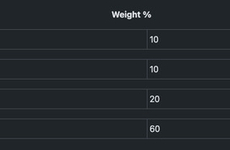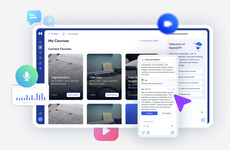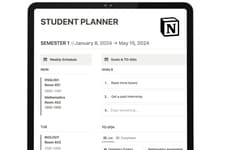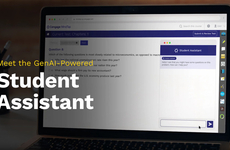
This GPA Calculator Predicts Scores by Gathering Environmental Information
Alyson Wyers — June 23, 2015 — Tech
References: studentlife.cs.dartmouth.edu & springwise
Researchers at Dartmouth College and the University of Texas at Austin are using lifestyle data to fuel a GPA calculator and smartphone tool capable of guessing scores within 0.17 of a point.
The SmartGPA app carries out a StudentLife study, which uses smartphones to gather data that can affect academic performance. This includes behavioral, cognitive and environmental aspects including class attendance, exercise, how often you party, sleeping habits and length of study time. The GPA calculator can do all this without users having to physically input any information. The smartphone data and its machine learning algorithms predict grade point averages without any previous knowledge like SAT scores or IQ.
SmartGPA helps students keep on track throughout the semester and allows them to course-correct before it's too late.
The SmartGPA app carries out a StudentLife study, which uses smartphones to gather data that can affect academic performance. This includes behavioral, cognitive and environmental aspects including class attendance, exercise, how often you party, sleeping habits and length of study time. The GPA calculator can do all this without users having to physically input any information. The smartphone data and its machine learning algorithms predict grade point averages without any previous knowledge like SAT scores or IQ.
SmartGPA helps students keep on track throughout the semester and allows them to course-correct before it's too late.
Trend Themes
1. Behavioral Data-based GPA Calculators - Education technology companies can create GPA calculation tools using machine-learning algorithms and behavioral data to support academic performance in universities and colleges.
2. Smartphone Data-based Learning - Learning and development companies can use smartphone data and machine-learning algorithms to develop tools that help students personalize their academic experience, including support based on lifestyle data.
3. Predictive Learning Analytics - Analytics companies can incorporate machine-learning algorithms to analyze behavioral and cognitive patterns in students, providing personalized predictions for academic success.
Industry Implications
1. Education Technology - Education technology providers can leverage behavioral data and machine-learning to support students in higher education through personalized learning tools.
2. Learning and Development - Learning and development companies can innovate by developing personalized and predictive tools using smartphone data and machine-learning that support academic success and improve outcomes.
3. Analytics - Analytics companies can apply machine-learning algorithms to student data to provide insights that predict academic success and personalize learning journeys.
2.1
Score
Popularity
Activity
Freshness























